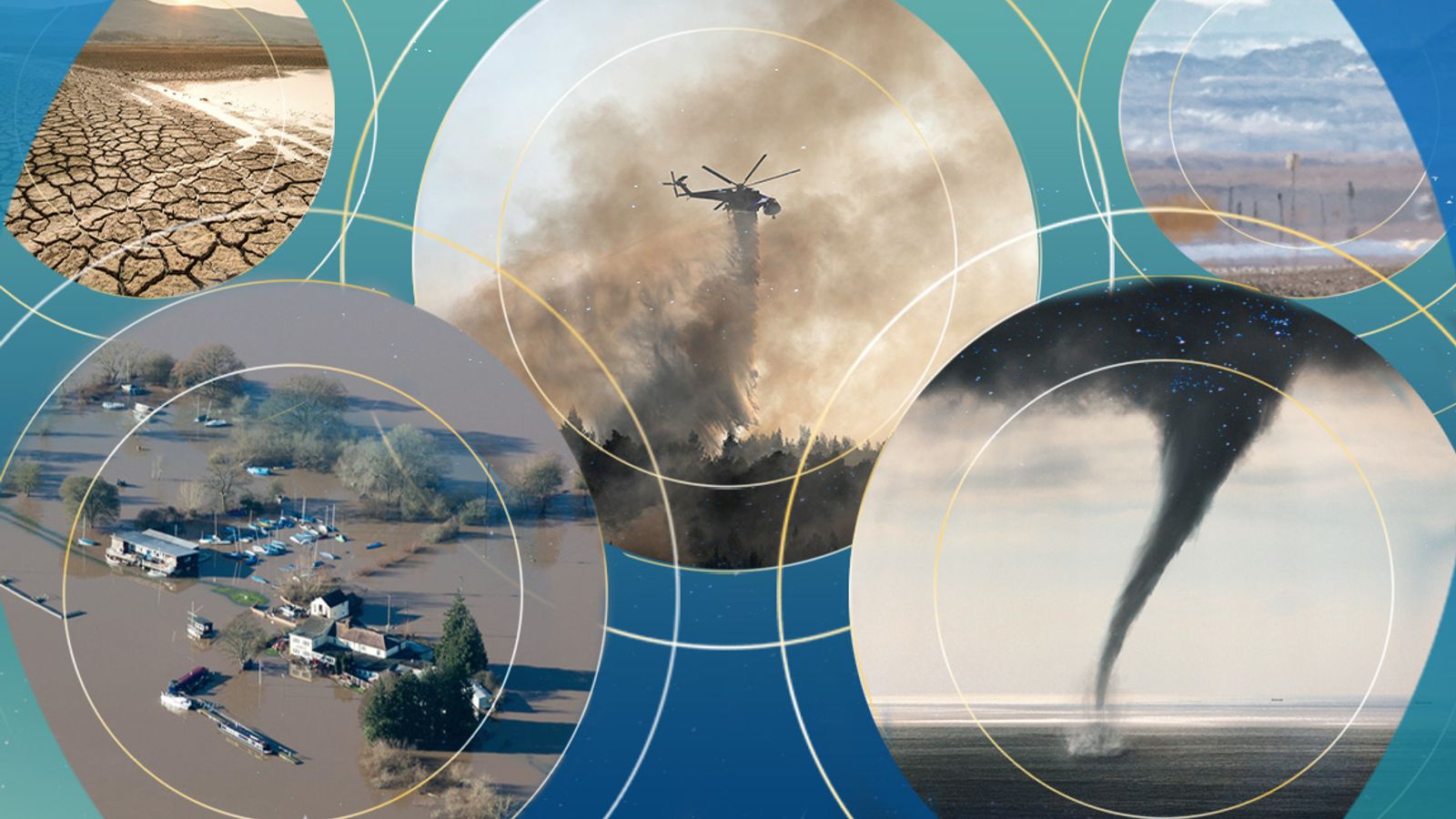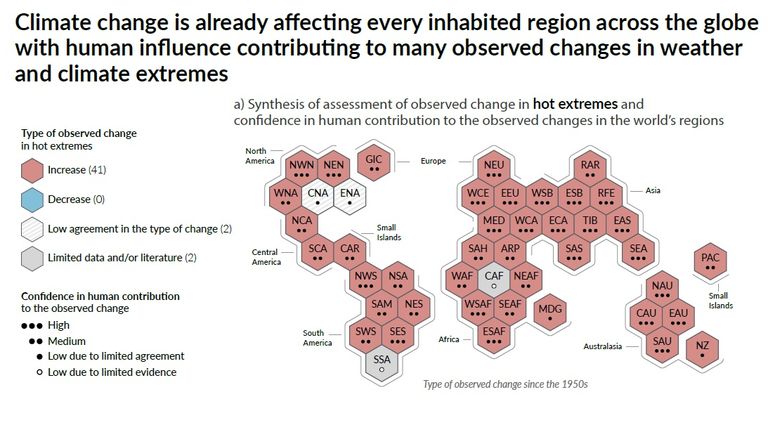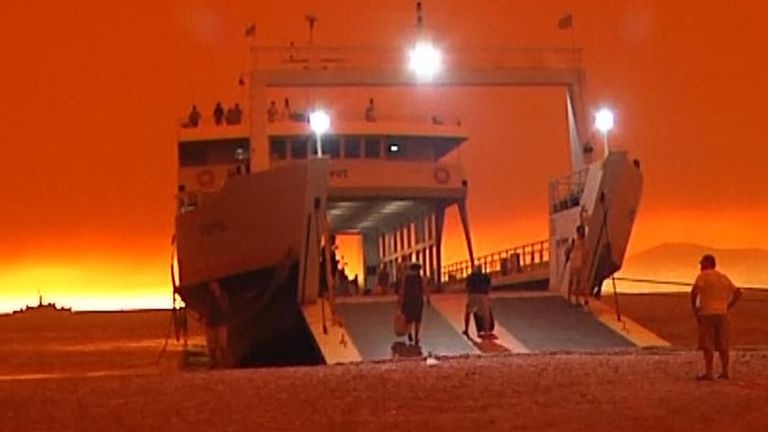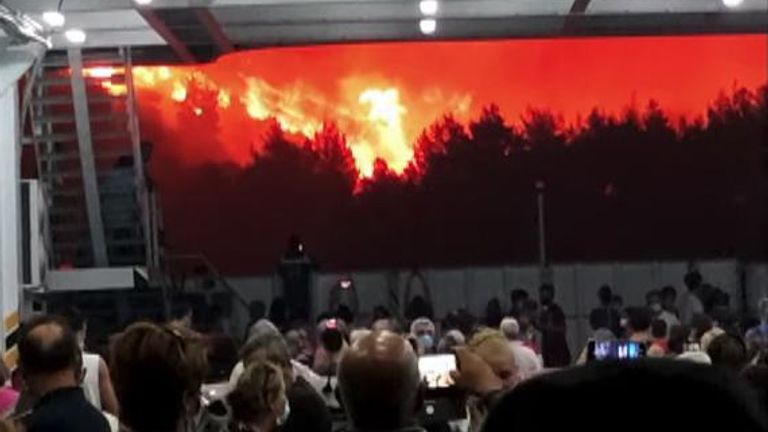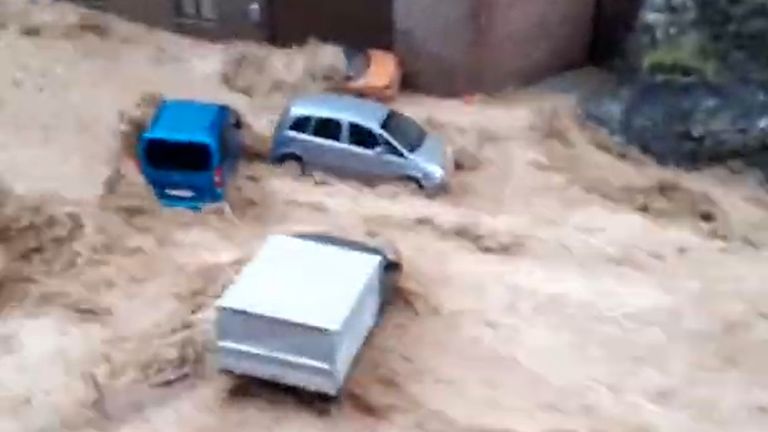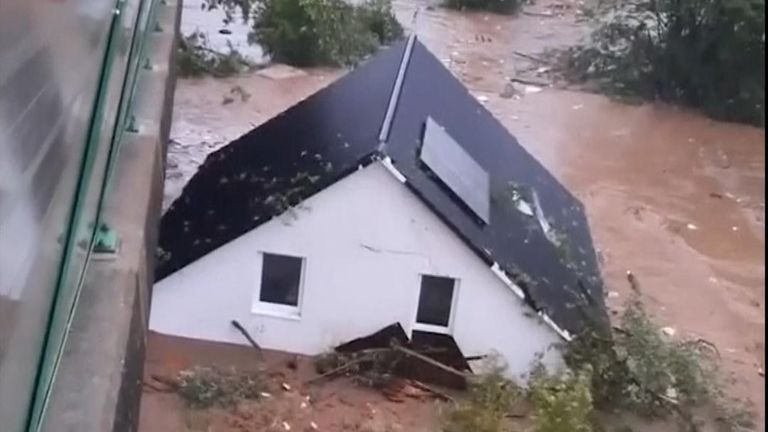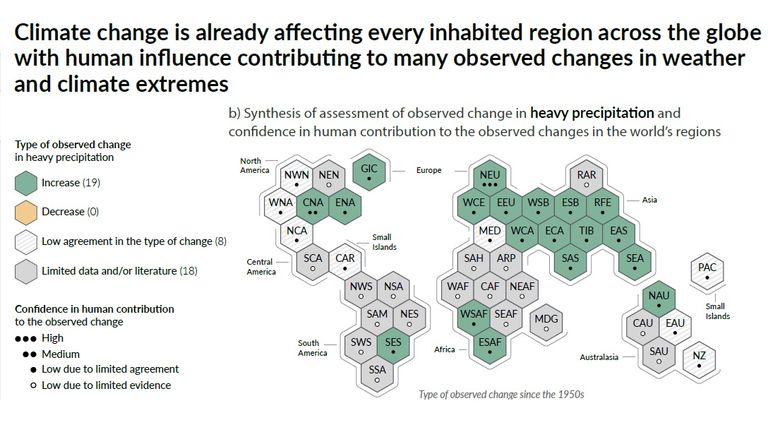Heatwaves, flooding and droughts will be more frequent and more intense as the world is set to hit the 1.5C global warming limit in the next 20 years, a landmark United Nations review has predicted.
The milestone scientific assessment says the rate of warming in the last 2,000 years has been “unprecedented” and it was “unequivocal” that human influence is already responsible for 1.1C of global warming since 1850.
Every inhabited region on Earth is already impacted by climate change and the report found that the accepted 1.5C limit will be met even in the best case scenario, causing more regular extreme weather events.
Under the 2015 Paris Agreement, more than 190 governments agreed the world should limit global warming to 2C or ideally 1.5C above pre-industrial levels.
The report warns that even in the best case scenarios, some changes are already locked in to our systems, including sea level rise. This will never be reversed, not even under the lowest scenario.
The language in the review is bolder than the last equivalent report from the Intergovernmental Panel on Climate Change (IPCC), the UN’s climate science body, which in 2013 called human influence on the climate system “clear”.
The “good news” in the report, said Dr Joeri Rogelj, climate change lecturer at Imperial College London, was that if the world did achieve net zero by 2050, there was a “significant chance” that we eventually stabilise below 1.5C.
Lead author Dr Tamsin Edwards told Sky News: “That is something people may see as optimistic, but we’re not there, and we are on higher emissions pathways at the moment that would lead to much greater climate change.”
Unless there are “immediate, rapid and large scale reductions in greenhouse gas emissions”, the 1.5C target will be beyond reach, she added.
Prime Minister Boris Johnson said the study made for “sobering reading” and that the next decade would be “pivotal to securing the future of our planet”.
This is the first time the influential group of scientists could say climate change is already impacting every single region on the planet.
This “major new development” is thanks to advances in attribution science – which assesses human influence on weather – said a report author Dr Friederike Otto, associate climate professor at Oxford University.
Labour’s Ed Miliband said the report “confirms in prose” what recent fires and floods had shown in picture: that “climate breakdown has already begun… and that extraordinary changes to our planet – from heavier rains and ocean acidification to glacier melt to sea-level rise – are already baked in for centuries to come”.
“Thanks to reports like this, the paths of our different futures are now mapped and modelled in front of us; and we still have a choice about the path to which we will commit ourselves and future generations,” the shadow business secretary said.
The IPCC investigated five future scenarios based on how much carbon dioxide the world continues to emit and what we do to compensate.
They found that even under the most optimistic pathway, which assumes “very low” emissions and achieving net zero around 2050, the world will hit 1.5 degrees in the next 20 years – though it could level off at 1.4C towards the end of the century.
In a briefing, a group of eight of the lead authors were at pains to stress that the goal of limiting warming to 1.5C was not a “cliff edge”.
“The consequences get worse and worse and worse as we get warmer and warmer,” said Ed Hawkins, climate science professor at Reading University. “And so every tonne of CO2 matters and every bit of warming matters.”
As in previous years, the report will likely set the scene for this year’s annual UN climate change negotiations, COP26, in Glasgow.
Many countries including the UK have pledged by 2050 to reach net zero – which means reducing emissions as much as possible and offsetting the rest – but have been criticised for failing to match this rhetoric with action.
Greenpeace UK’s chief scientist Dr Doug Parr said this generation of world leaders was the “last that can afford to ignore” the “gravity of the climate crisis”.
Dr Parr said the increased “frequency, scale and intensity of climate disasters that have scorched and flooded many parts of the world in recent months is the result of past inaction”.
“We need concrete policies to cut carbon emissions as fast as possible, phase out fossil fuels, transform our food system and deliver more cash to the countries worst hit by the climate crisis.”
The report cautioned 2C warming would likely breach extreme heat thresholds for agriculture and health.
The assessment found carbon removal could reverse some of the increase in global temperatures – although a lot of this technology is unproven to work at scale, says Friends of the Earth.
Subscribe to ClimateCast on Spotify, Apple Podcasts, or Spreaker.
Sky News has launched the first daily prime time news show dedicated to climate change.
The Daily Climate Show is broadcast at 6.30pm and 9.30pm Monday to Friday on Sky News, the Sky News website and app, on YouTube and Twitter.
Hosted by Anna Jones, it follows Sky News correspondents as they investigate how global warming is changing our landscape and how we all live our lives.
The show also highlights solutions to the crisis and how small changes can make a big difference.
